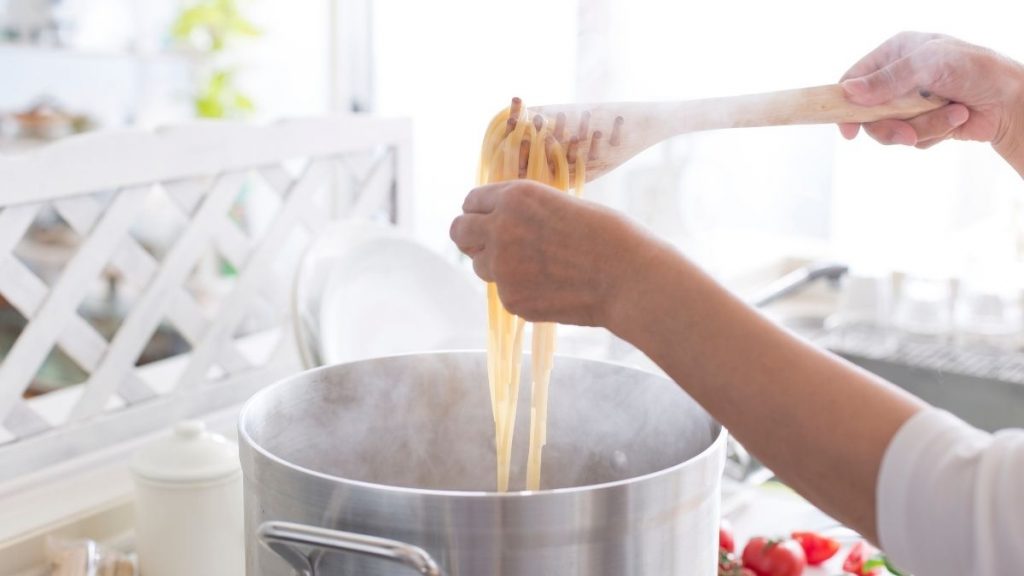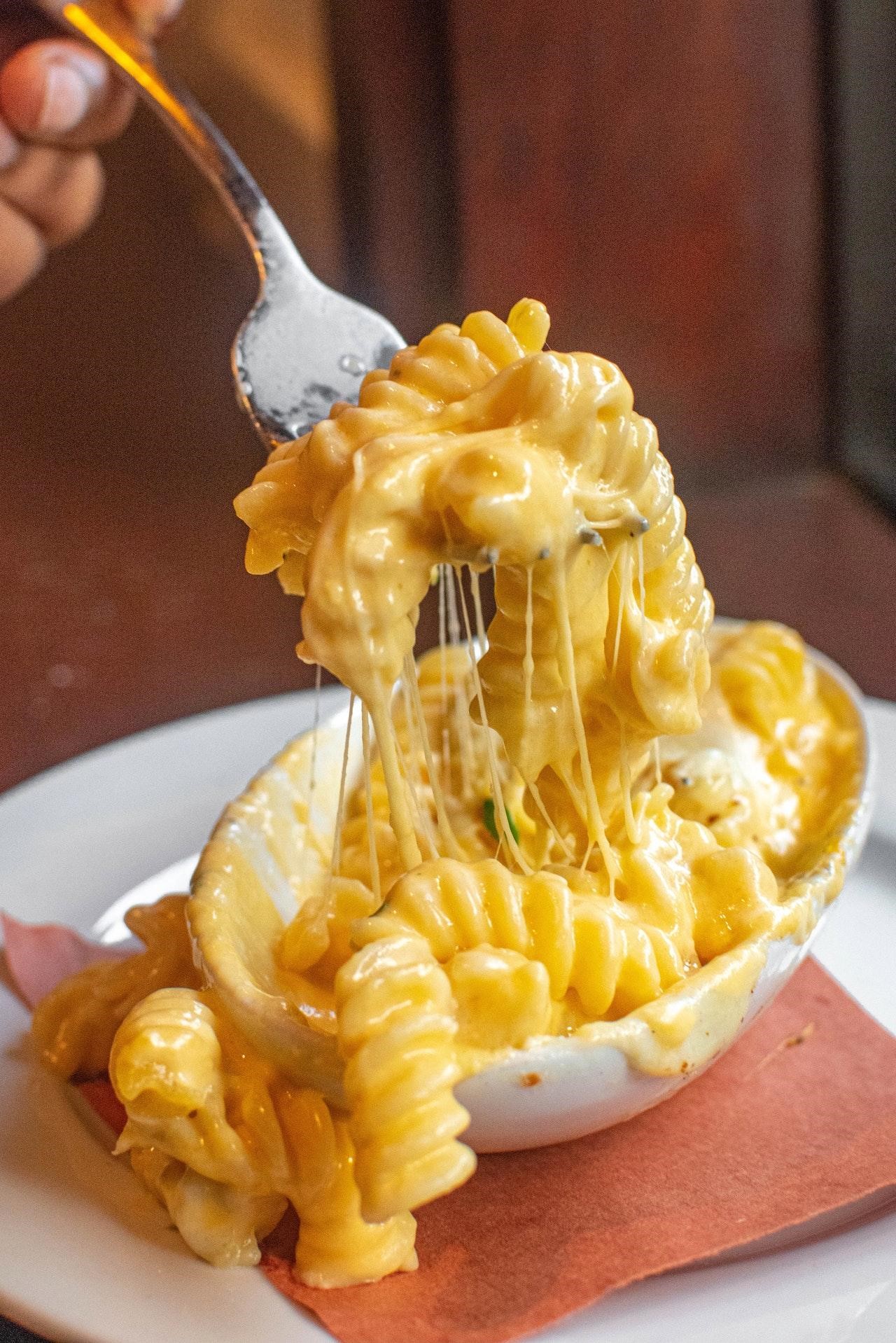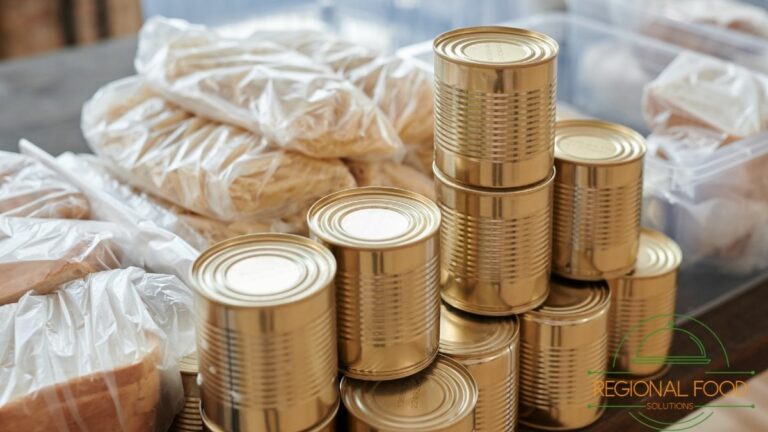How To Prevent Pasta From Sticking? (10 Easy Tips)

On some nights, there is nothing better than making pasta for dinner. However. However, unless or until you are a chef you will not be able to cook pasta for the first time without facing the sticking problem.
Because of its unique taste pasta is considered a universally accepted dish. You could ruin this delicious dish if you are following the wrong techniques while making pasta. In most cases, your pasta will adhere to the other pasta pieces. You might not want to be in this condition. Now you don’t need to worry about it because I am here to help you out.
To stop the pasta from sticking you should add the pasta to boiling water and try to stir it continuously without overcooking it. Moreover don’t forget to finish cooking it in the sauce for a few minutes before serving.
Besides these tricks, there are a lot of other techniques that you can use to prevent pasta from sticking. If you want to know about all the techniques that you can use to avoid pasta from sticking then keep on reading this blog till the end.
Being a chef for almost five years I have tried making pasta hundreds of times. Every time I make pasta it doesn’t get stuck. Do you know why? Because I use the right techniques!
Here are some of the most common techniques that you can use to Stop Your Pasta From Sticking:
1. Stir It Constantly For The First Few Minutes
If you are trying to make pasta then your first few minutes are very important. When you add pasta to the boiling water you should stir it constantly for the first few minutes. It will help you in keeping the different pieces of pasta away from each other.
As a result of constant stirring, the pasta will not get enough time to stick with each other. After a few minutes, you don’t need to stir it constantly because the pasta will be cooked to some extent and will not stick.
2. Add salt to the pasta water
Adding salt to the pasta water will also help you in stopping the pasta from sticking. The pieces of salt will dissolve in water and will make the water denser. As a result, it will be hard for the pasta to start sticking.
3. Use A Large Pot Of Water
The pot on which you are boiling water should be large enough to hold the amount of pasta. If the pot is very small then it will be easy for the pasta to start sticking with each other.
That’s why while making pasta you should always use a larger pot than the amount of pasta that you are going to make.
4. Don’t Let It Sit In The Colander For Long
If you are draining the pasta into the Colander for a long time then it will be easy for the pasta pieces to stick with each other. In this way, they will form a firm bond with each other and you will have to eat that sticking pasta. You might not want to do it.
The best solution for this problem is that your sauce should be ready when you are boiling pasta and you should put sauce as soon as you can. I will also highlight the reason behind this fact later in this blog.
5. Rinse The Pasta (Only If You’re Going To Chill It)
If you have ever tried to make pasta for a cold dish then you might have noticed that the sticking of pasta increases. The reason behind this fact is that when you refrigerate the pasta they stick with each other because of the close bond and the presence of excess starch on the surface. As a result, you only get a huge piece of pasta that looks so weird and ugly.
That’s why to prevent this situation you should always rinse pasta before refrigerating it. This will remove the excess starch from the surface of the pasta and make it difficult for pasta pieces to stick with each other.
6. Don’t Let It Sit In The Water Once It’s Cooked
If you boil the pasta for a long time then at the end you will get overcooked pasta. It’s a fact that overcooked pasta usually sticks more than pasta that has been cooked for a short period.
So, if you are testing the pasta while cooking and find out that it’s perfect then don’t let it sit in the water any longer. Make sure that the sauce is ready before the boiling of pasta. In this way, you can get the pasta out of the water as soon as it’s perfectly cooked.
7. Add The Pasta To The Sauce As Soon As It’s Cooked
As I have described earlier leaving the pasta in a colander for a long time will increase the sticking process. To avoid the sticking of pasta you should put the sauce in pasta as soon as it’s cooked.
This step will prevent the pasta from sticking with each other because now there is sauce between each piece of pasta. So, it will be very hard for the pasta to stick with each other.
8. Make Sure The Water Is Boiling Heavily
One mistake that most people repeat is that they put the pasta in cold water and then place it on fire. It’s a fact that the sticking process increases in cold water more than in hot water.
So, while making pasta you should always put the pasta in boiling water. Moreover, the water needs to be boiling at a constant rate. Pasta will cook through completely at temperatures of 180°F OR 82°C.
9. Finish Cooking It In The Sauce
Finishing the cooking of pasta in the sauce will stop the pieces of pasta from sticking with each other. Since sauces are usually thick it will be difficult for the surface of pasta to connect. As a result, the sticking of pasta will decrease and you will be able to get beautiful and tasty pasta.
10. Don’t add oil to pasta water
Some people might not agree with me on this fact. You may be able to find a lot of resources over the internet that claim that adding oil to the pasta will prevent it from sticking. However, all of these are wrong theories.
Oil doesn’t have anything to do with the sticking of pasta. Many famous chefs don’t recommend the use of oil to stop the stickiness of pasta.
Because of the density of oil, it will remain separate from pasta. That means it will not add any value in preventing the stickiness of pasta.
As I have discussed oil doesn’t contribute at all in preventing pasta from sticking with each other. This does not mean that it can’t prevent pasta surfaces from mixing with the different sauces. If you add oil to the rinsed pasta then it will reduce stickiness because of the absence of water.
What Factors Contribute To Pasta Sticking?
According to experts, the stickiness of pasta is influenced by cultivar, wheat class, raw material granulation, and protein content in pasta. Moreover, the starch on the surface of pasta also contributes to the stickiness of pasta.
Remember that this stickiness is not related to sprouting damage. However, it can cause other issues like cooking loss, cooked weight, degree of swelling, compressibility, recovery, and firmness.
Here are some of the main factors that contribute to pasta sticking:
Presence of starch
The surface of pasta contains a lot of starch. That’s why it’s easy for the pasta to get stick with each other. When you heat pasta in water, the molecules of both the starch and the water move faster, and water seeps into the granules which eventually increases the stickiness of the pasta.
Wheat class
Pasta is made of common wheat. That’s why when you drop the pasta into the water they get stuck with each other. Moreover, wheat is also a great source of starch which is another reason for the stickiness of pasta.
Protein content
Pasta contains a lot of protein content. Since protein is a sticky nutrient so it could also be a reason behind the stickiness of pasta.
Final Thoughts:
I hope this article might help you in preventing pasta from sticking with each other. Next time whenever you are going to make pasta keep this article open on your phone so that you can follow the tips accordingly. In this way, it will be easy for you to prevent pasta from sticking. So, what are you waiting for? Let’s show your cooking skills to your homies.
If you find this resource helpful then share it with your loved ones so that they can also get some benefits from it.
Want to share your proven ways to prevent pasta from sticking with each other? You can easily share them in the comment section. I would love to hear from your side.
Related Questions
Does the use of olive oil reduce the stickiness of pasta?
No, the use of olive oil can’t reduce the stickiness of pasta. The reason behind this fact is that when you add oil to the boiling water because of the denser nature of oil it keeps itself separate from water. That’s why it doesn’t contribute to preventing pasta from sticking with each other.
Do I Need A Large Pot Of Water to Avoid Pasta Sticking?
Yes, in some cases it will prevent pasta from sticking with each other. If you are not using a pot that is larger than the amount of pasta that you are going to make then it will be easy for the pasta to get stick with each other. In other words, the more the surface is touching with each other, the more will be the chances of pasta sticking.
Can pasta stick to my colon?
No, pasta is considered as a digestible dish so it will not stick with your colon. Pasta contains starch. When you eat starch, your body breaks it down. The saliva in your mouth starts to break it down into pieces and it will easily pass through your colon.
Mark Turner
Mark Turner is a food lover who likes to travel the world and find food that he never tasted before. With all the tasting he did all over he can write some amazing content related to food and cooking. You can read more about Mark Turner here.






